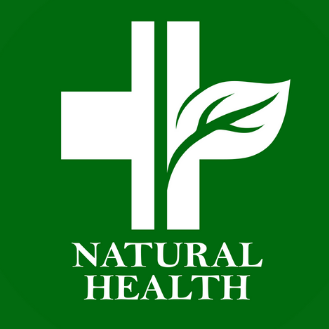How to Boost Nitric Oxide for Better Health and Circulation
by Meagan Clayton
Your body produces an incredible molecule that can transform your health—nitric oxide. This naturally occurring compound helps blood flow more easily through your vessels, supporting everything from heart health to cognitive function. Yet many people don't realize their circulation issues might stem from declining nitric oxide production.
Cold hands and feet, unexplained fatigue, and weak muscles are common signs your circulation needs support. The good news? You can naturally boost nitric oxide production through simple dietary changes, targeted supplements, and lifestyle modifications. Let's explore how to unlock your body's potential for better circulation and vibrant health.
Understanding Nitric Oxide and Its Role in Your Health
Nitric oxide (NO) acts as a signaling molecule in your body, helping blood vessels relax and widen. This process, called vasodilation, allows blood to flow more freely to your organs and tissues. When your body produces adequate nitric oxide, you experience better circulation, improved oxygen delivery, and enhanced nutrient transport throughout your system.
Your body naturally produces nitric oxide, but this production decreases with age, poor diet, and certain lifestyle factors. This decline can contribute to various health challenges, including cardiovascular issues, reduced athletic performance, and cognitive difficulties.
The circulatory system extends far beyond your heart—it's responsible for delivering nutrients to every cell while removing waste products. When circulation is compromised, you might notice symptoms like cold extremities, muscle weakness, brain fog, or persistent fatigue.
Recognizing Signs of Poor Circulation
Understanding the warning signs of compromised circulation helps you take action before more serious issues develop. Common indicators include:
Physical symptoms often manifest as cold hands and feet that won't warm up, even in comfortable temperatures. You might experience muscle weakness, cramping, or slow-healing wounds. Swelling in your legs or feet can also signal circulation problems.
Cognitive effects may include difficulty concentrating, memory issues, or mental fatigue. Your brain requires substantial blood flow to function optimally, so circulation problems often impact cognitive performance.
Energy levels frequently suffer when circulation is poor. You might feel tired despite adequate sleep, experience reduced stamina during physical activities, or notice that simple tasks feel more challenging than usual.
Sexual health can be affected since proper blood flow is essential for sexual function. Both men and women may experience related difficulties when circulation is compromised.
Factors That Affect Nitric Oxide Production
Several factors influence your body's ability to produce nitric oxide effectively. Understanding these can help you make targeted improvements.
Age-related decline is natural but manageable. As you get older, your body's nitric oxide production naturally decreases. This process typically begins in your 20s and continues throughout life, but lifestyle choices can significantly slow this decline.
Dietary patterns play a crucial role. Diets high in processed foods, refined sugars, and unhealthy fats can impair nitric oxide production. Conversely, nutrient-rich whole foods support optimal production.
Medical conditions including high blood pressure, high cholesterol, diabetes, and obesity can interfere with nitric oxide production and circulation. These conditions often create a cycle where poor circulation worsens the underlying condition.
Lifestyle factors such as smoking, excessive alcohol consumption, chronic stress, and sedentary behavior all negatively impact nitric oxide production. Even seemingly minor habits, like using antiseptic mouthwash regularly, can disrupt the oral bacteria necessary for nitric oxide production.
Dietary Strategies to Boost Nitric Oxide
Your diet provides the foundation for healthy nitric oxide production. Specific nutrients and compounds in foods can significantly enhance your body's ability to create this vital molecule.
Nitrate-Rich Foods: Nature's Circulation Boosters
Nitrate-rich vegetables are among the most effective dietary sources for supporting nitric oxide production. Your body converts dietary nitrates into nitric oxide through a fascinating process involving beneficial bacteria in your mouth and stomach.
Leafy greens top the list of nitrate-rich foods. Arugula contains the highest concentration of nitrates among common vegetables, followed by spinach, bok choy, and Swiss chard. These versatile greens can be incorporated into salads, smoothies, soups, and stir-fries.
Root vegetables also provide substantial nitrates. Beets and beet greens are particularly rich sources, while radishes and kohlrabi offer additional variety. Many people find beet juice to be a convenient way to increase nitrate intake.
Fresh herbs like cilantro, basil, and parsley contain concentrated nitrates and can easily be added to meals throughout the day. These herbs also provide additional antioxidants and flavor compounds that support overall health.
Amino Acids That Support Nitric Oxide Production
Two specific amino acids play crucial roles in nitric oxide production: L-arginine and L-citrulline. These compounds work together to enhance your body's ability to create nitric oxide.
L-arginine serves as the direct precursor to nitric oxide. Your body converts L-arginine into nitric oxide through enzymatic processes. Foods rich in L-arginine include nuts, seeds, legumes, turkey, and fish.
L-citrulline may be even more effective than L-arginine for boosting nitric oxide levels. Your body converts L-citrulline into L-arginine, which then becomes nitric oxide. This indirect pathway often proves more efficient because L-citrulline is better absorbed and less likely to be broken down in the digestive tract.
Watermelon contains high levels of L-citrulline, particularly in the white rind. Other sources include cucumber, bitter melon, and certain legumes.
Targeted Supplements for Nitric Oxide Support
While a nutrient-rich diet provides the foundation for healthy nitric oxide production, targeted supplements can offer additional support, especially for those with specific health goals or dietary restrictions.
L-Citrulline Supplementation
Research consistently shows that L-citrulline supplementation effectively increases nitric oxide levels and improves circulation markers. Studies have found that L-citrulline positively impacts nitric oxide levels and antioxidant markers, particularly during exercise.
For general circulation support, doses of 1.5 to 6 grams daily have proven effective in research studies. L-citrulline appears to be well-tolerated with few reported side effects, making it an attractive option for many people.
L-Arginine Considerations
L-arginine supplementation can also support nitric oxide production, though it may be less efficient than L-citrulline due to digestive breakdown. Typical doses range from 2 to 6 grams daily, though individual needs may vary.
Some people experience mild digestive upset with L-arginine supplementation, particularly at higher doses. Starting with smaller amounts and gradually increasing can help minimize any discomfort.
Lifestyle Factors That Enhance Nitric Oxide Production
Beyond nutrition and supplementation, several lifestyle practices can significantly impact your body's nitric oxide production and overall circulation.
Exercise: The Natural Circulation Booster
Regular physical activity is one of the most effective ways to enhance nitric oxide production and improve circulation. Exercise stimulates the production of nitric oxide synthase, the enzyme responsible for creating nitric oxide in your blood vessels.
Aerobic exercise provides particular benefits for circulation and vascular health. Activities like walking, swimming, cycling, and dancing promote healthy blood flow and help maintain flexible blood vessels. Aim for at least 150 minutes of moderate-intensity aerobic activity weekly.
Resistance training also supports circulation by promoting muscle pump action and improving overall cardiovascular fitness. The muscle contractions during strength training help push blood back to your heart, supporting overall circulation.
High-intensity interval training (HIIT) may be especially effective for boosting nitric oxide production. The alternating periods of intense effort and recovery create physiological stress that stimulates nitric oxide production and improves vascular function.
Oral Health and Nitric Oxide
Your oral microbiome plays a surprising role in nitric oxide production. Beneficial bacteria in your mouth help convert dietary nitrates into nitrites, which your body then converts to nitric oxide.
Mouthwash considerations are important for nitric oxide production. Regular use of antiseptic mouthwash can disrupt the oral bacteria necessary for nitrate conversion, potentially reducing nitric oxide production. Consider limiting antiseptic mouthwash use or choosing gentler alternatives.
Dental hygiene remains important for overall health, but aggressive antimicrobial treatments might interfere with beneficial bacteria. Work with your dental healthcare provider to maintain oral health while preserving beneficial microbes.
Comprehensive Diet Recommendations for Circulation
Creating a diet that supports healthy circulation and nitric oxide production involves more than just focusing on specific nutrients. A holistic approach emphasizes anti-inflammatory foods and eating patterns that support overall cardiovascular health.
Mediterranean-Style Eating Pattern
The Mediterranean diet has decades of research supporting its cardiovascular benefits. This eating pattern naturally includes many foods that support nitric oxide production while providing anti-inflammatory compounds that protect blood vessels.
Key components include abundant vegetables and fruits, whole grains, legumes, nuts, seeds, olive oil, and fatty fish. These foods provide nitrates, antioxidants, omega-3 fatty acids, and fiber that collectively support circulation and heart health.
Practical implementation might involve starting each day with a spinach and berry smoothie, enjoying a large salad with mixed greens for lunch, and including fish or legumes with dinner alongside colorful vegetables.
Anti-Inflammatory Foods for Vascular Health
Chronic inflammation can damage blood vessels and impair circulation. Including anti-inflammatory foods in your diet supports vascular health and may enhance nitric oxide production.
Omega-3 fatty acids from fish, walnuts, chia seeds, and flaxseeds help reduce inflammation and support healthy blood flow. These compounds influence blood viscosity, making it easier for blood to flow through your circulatory system.
Colorful fruits and vegetables provide antioxidants that protect blood vessels from damage. Berries, citrus fruits, leafy greens, and colorful vegetables offer diverse compounds that support vascular health.
Whole grains provide fiber and nutrients that support healthy cholesterol levels and blood sugar control, both important for circulation. Choose quinoa, brown rice, oats, and other minimally processed grains.
Supporting Vascular Health Beyond Nitric Oxide
While nitric oxide production is crucial for circulation, maintaining healthy blood vessels requires additional considerations. Supporting the structural integrity of your vascular system involves a combination of lifestyle habits and nutrient-rich foods. Omega-3 fatty acids, found in fatty fish like salmon and mackerel, as well as in flaxseeds and walnuts, play an essential role in reducing inflammation and promoting blood flow. Additionally, staying hydrated is vital, as dehydration can lead to thicker blood and reduced circulation.
Regular physical activity also contributes significantly to vascular health. Exercises such as walking, cycling, or yoga help strengthen the heart, improve blood flow, and support the elasticity of blood vessels. Coupled with stress management techniques, like deep breathing or meditation, these habits create a foundation for a healthier circulatory system. By combining mindful choices with a balanced diet, you can support your vascular health and overall well-being effectively.
Staying hydrated is another key factor in promoting vascular health. Water helps maintain proper blood viscosity, ensuring that your blood flows smoothly through your veins and arteries. Dehydration can lead to thicker blood, which puts extra strain on your heart and increases the risk of circulation issues. Aim to drink enough water throughout the day, especially during physical activity or in warmer climates. By keeping hydration a priority, you empower your body to function at its best and maintain a vibrant, healthy lifestyle.
Next Steps
Your health is worth investing in, and boosting nitric oxide levels is a simple yet impactful place to start. Whether it’s adding more greens to your plate, lacing up your sneakers for a brisk walk, or trying out a supplement, the path to better circulation is within reach.
We are happy to provide our opinion on diet and nutrition, supplements and lifestyle choices. This information is for educational purposes only. It is not meant to replace the advice of your physician and is not to be considered medical advice, diagnosis or treatment. Should you have any concerns please contact your physician directly.



